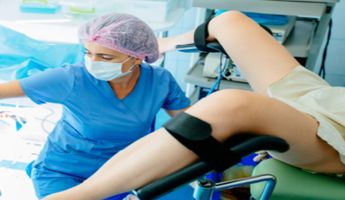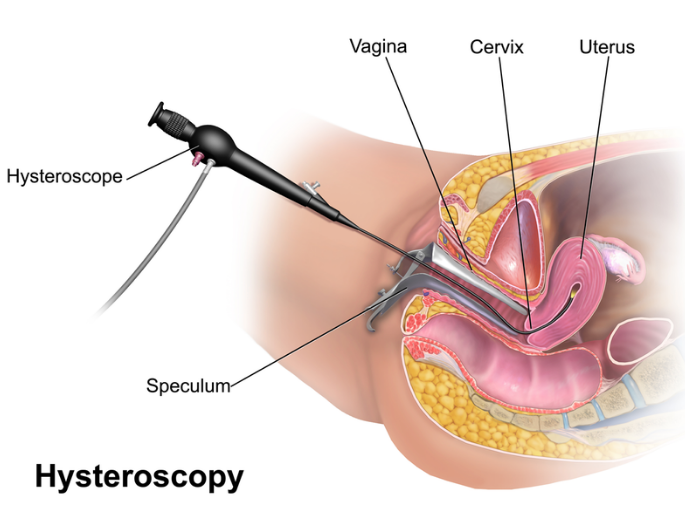Hysteroscopy in Russian Federation
Search and Compare the Best Clinics and Doctors at the Lowest Prices for Hysteroscopy in Russian Federation

Find the best clinics for Hysteroscopy in Russian Federation
With Medijump you can browse 3 facilities offering Hysteroscopy procedures in Russian Federation. The cheapest price available is $747 in Moscow. And for the cheapest price globally, prices start from $222 in Morocco.
Hysteroscopy in Moscow
Price: $ 747
Morocco offers the best prices Worldwide
Price: $ 222
From 15 verified reviews
Ксения Фомичева, 19 September 2020
Здесь собраны все эксперты по женской красоте! Уникальный набор процедур поможет не только держать тело в тонусе, но и продлить или вернуть молодость. Прекрасный сервис и специалисты!
Premier Medica, located in Spiridonyevskiy Pereulok, Moscow, Russian Federation offers patients Hysteroscopy procedures among its total of 135 available procedures, across 12 different specialties. Currently, there's no pricing information for Hysteroscopy procedures at Premier Medica, as all prices are available on request only, whilst the national average price is approximately ฿26,900. There are many specialists available at the Clinic, with 5 in total, and they are not accredited by any recognized accreditations institutes
JSC Medicina Clinic, located in Spiridonyevskiy Pereulok, Moscow, Russian Federation offers patients Hysteroscopy procedures among its total of 288 available procedures, across 17 different specialties. Currently, there's no pricing information for Hysteroscopy procedures at JSC Medicina Clinic, as all prices are available on request only, whilst the national average price is approximately ฿26,900. There are many specialists available at the Clinic, with 10 in total, and they are accredited by JCI Accredited
- Home
- Russian Federation
WHY US?
At Medijump, we're making medical easy. You can search, compare, discuss, and book your medical all in one place. We open the door to the best medical providers worldwide, saving you time and energy along the way, and it's all for FREE, no hidden fees, and no price markups guaranteed. So what are you waiting for?

Free

Best Price

Widest Selection

Risk-Free
What you need to know about Hysteroscopy in Russian Federation

Hysteroscopy is a procedure that allows a doctor to examine the inside of a woman’s cervix and uterus in order to diagnose and treat issues, such as pelvic pain, difficulty getting pregnant and abnormal bleeding. It is performed using a thin and flexible tube with a camera and a light at the end called a hysteroscope, which will send an image to a monitor so your doctor can get an up-close look inside your cervix and uterus.
What does a Hysteroscopy Procedure Involve?
Hysteroscopy can be performed under local anaesthetic and sedative, but it can also be done under general anaesthetic. Medication or tools called dilators are used to help open your cervix to allow the hysteroscope to be inserted. Then, a liquid solution or carbon dioxide gas is inserted through the hysteroscope into the uterus to clear away any blood or mucus and expand it, which will give your doctor a clear view of its lining. If surgery needs to be performed, the surgeon may do it during the procedure using tiny surgical instruments that are inserted through the hysteroscope.
How Long Should I Stay in Russian Federation for a Hysteroscopy Procedure?
You may be able to leave the hospital several hours after the procedure. However, it is recommended to stay in Russian Federation for around 2 to 3 days, especially if you had treatment during the procedure or if you received general anaesthetic as you will need to allow your body to rest for several days.
What's the Recovery Time for Hysteroscopy Procedures in Russian Federation?
Most women are able to get back to work as well as their normal activities the day after the procedure. But, you may want to rest for a few days if a general anaesthetic was used or treatment was performed during your hysteroscopy. Note that you need to avoid sex for around 2 weeks after the procedure.
What sort of Aftercare is Required for Hysteroscopy Procedures in Russian Federation?
You may experience cramping and bleeding, but you can take pain medication and wear pads to deal with this. If the result of your hysteroscopy shows any disease or abnormalities, you may want to schedule a follow-up appointment with your doctor in Russian Federation or with your local doctor at home to discuss a treatment plan.
What's the Success Rate of Hysteroscopy Procedures in Russian Federation?
Hysteroscopy is a highly successful and effective procedure to examine your uterus and cervix. Nonetheless, there is still a small chance that the result is inaccurate, but it is very rare. Also, there are some side effects and complications to be aware of, including infection, tearing or damage to the cervix, damage to nearby organs, pelvic inflammatory disease, problems with gas or fluid from the uterus, and problems with the anaesthetic.
Are there Alternatives to Hysteroscopy Procedures in Russian Federation?
The alternatives to hysteroscopy are pelvic ultrasound and endometrial biopsy. These procedures can be performed alongside a hysteroscopy, but they do not provide as much information as a hysteroscopy.
What Should You Expect Before and After the Procedure
Before hysteroscopy, you may have an unknown condition in your uterus or cervix, which may be dangerous and life-threatening. After the procedure, you will find out what is causing the symptoms and you can discuss with your doctor the best treatment plan.
Whilst the information presented here has been accurately sourced and verified by a medical professional for its accuracy, it is still advised to consult with your doctor before pursuing a medical treatment at one of the listed medical providers
No Time?
Tell us what you're looking for and we'll reachout to the top clinics all at once
Enquire Now

Popular Procedures in Russian Federation
Prices Start From $106

Prices Start From $131

Prices Start From $47

Recommended Medical Centers in Russian Federation for Hysteroscopy

- Interpreter services
- Translation service
- Religious facilities
- Medical records transfer
- Medical travel insurance
- Health insurance coordination
- TV in the room
- Safe in the room
- Phone in the room
- Private rooms for patients available

- Interpreter services
- Translation service
- Religious facilities
- Medical records transfer
- Medical travel insurance
- Health insurance coordination
- TV in the room
- Safe in the room
- Phone in the room
- Private rooms for patients available

- Interpreter services
- Translation service
- Religious facilities
- Medical records transfer
- Medical travel insurance
- Health insurance coordination
- TV in the room
- Safe in the room
- Phone in the room
- Private rooms for patients available
Hysteroscopy in and around Russian Federation
The Russian Federation, or Russia, is a transcontinental country that stretches over a vast expanse of Eastern Europe and northern Asia. Once a mighty tsarist empire and a communist superpower, this massive country is enigmatic, intimidating, and fascinating all at the same time. It has everything, from the idyllic countryside and historic cities to scenic beauty and artistic riches. Today, Russia is a famous medical tourism destination. The number of medical tourists seeking high-quality healthcare continues to double each year. These medical tourists mainly come from Asian countries, such as China, South Korea, India, Japan, and Vietnam. They come to receive a wide range of medical care, with IVF treatment, dental services, cosmetic surgery, and cardiovascular surgery being the most sought-after.
Popular Parts of the Russian Federation
Most visitors are drawn to the western part of the country, particularly to Moscow and St. Petersburg. Moscow, the capital of Russia, is popular for its show-stopping architecture, rich history, amazing culture, and great food. Some of the most famous landmarks are the St. Basil’s Cathedral, the Red Square and the Lenin Mausoleum, the Moscow Kremlin, The Tretiakov Gallery, and the Wooden Palace of Tsar Alexei Mikhailovich. St. Petersburg, Russia’s second city and imperial capital, is one of the most gracious cities in Europe. People come to this city to visit the State Hermitage Museum, the Grand Palace, and Catherine Park.
Weather and Climate in the Russian Federation
There are four seasons in Russia. December to February are the winter months, which is cold and snowy, with short days and long nights. The average temperature during this season is around -10°C to 3°C. Spring comes in March, bringing warmer, but rainy weather. Summer, from June to August, is hot and humid, with an average temperature of around 12°C to 26°C. The weather can be quite unpredictable in the summer, and downpours can come unexpectedly. Autumn is from September to October and is warm and pleasant.
Getting around in the Russian Federation
The largest airport in Russia that receive the most international flights is Sheremetyevo Alexander S. Pushkin International Airport in Moscow. It serves both domestic and international flights to many cities around the globe. Since Russia is the world’s largest territory, internal flights are the fastest and most convenient way to get around. Trains have an extensive network, and, with many comfortable overnight services, is considered as the best way to get around. Buses are a great option to travel to the areas not covered by the train. Some really remote destinations may only be reached by private cars or taxis. Taxis are relatively inexpensive and widely available.
Tourist Visas in the Russian Federation
Nationals of 62 nations, including Brazil, South Africa, South Korea, North Macedonia, and Hong Kong, can visit and stay in Russia without a visa for a period of 14 to 90 days. Citizens of other countries not listed in the visa exemption agreement need a visa to enter. Electronic visas are available for citizens of several countries, including all EU countries, China, and India.
Additional Information
- Local Currency: Russian uses the Russian ruble (RUB) as its official currency. 1 USD is equivalent to 77.16 RUB.
- Money & Payments: The easiest way to get rubles is by using ATMs, which is available throughout the country. Major credit and debit cards, including MasterCard and Visa, are accepted in larger hotels and restaurants, but cash is more reliable. Some places may offer to accept euros and dollars, but this is illegal. Tipping is expected, around 10% to 15% of the bill. Always tip in cash and give it directly to the waiter.
- Local Language: There are over 100 minority languages spoken in Russia, but the official and most widely spoken language is Russian. English is spoken to some degree, especially in major cities.
- Local Culture and Religion: Most of Russia’s population adheres to Christianity, with the Russian Orthodox Church being the biggest Christian denomination. There are also small groups of Muslims, Buddhists, and Jewish.
- Public holidays: New Year’s Day, Orthodox Christmas Day, Defender of the Fatherland Day, Victory Day, Russia Day, and Unity Day are some of the most important public holidays in Russia.
Popular Searches
- Plastic Surgery in Thailand
- Dental Implants in Thailand
- Hair Transplant in Thailand
- Breast Augmentation Thailand
- Gastric Sleeve in Thailand
- Gender Reassignment Surgery in Thailand
- Laser Hair Removal in Bangkok
- Botox in Bangkok
- Dermatology in Bangkok
- Breast Augmentation in Bangkok
- Coolsculpting in Bangkok
- Veneers in Turkey
- Hair Transplant in Turkey
- Rhinoplasty in Turkey
- Stem Cell Therapy in Mexico
- Rhinoplasty in Mexico
- Liposuction in Mexico
- Coolsculpting in Tijuana
- Rhinoplasty in Korea
- Scar Removal in Korea
- Gastric Sleeve in Turkey
- Bone Marrow Transplant in India
- Invisalign in Malaysia
- Plastic Surgery in the Dominican Republic
- Tummy Tuck in the Dominican Republic
- Plastic and Cosmetic Surgery in Poland
- Rhinoplasty in Poland
- Hair Implant in Poland
- Dental Implants in Poland
- IVF in Turkey


